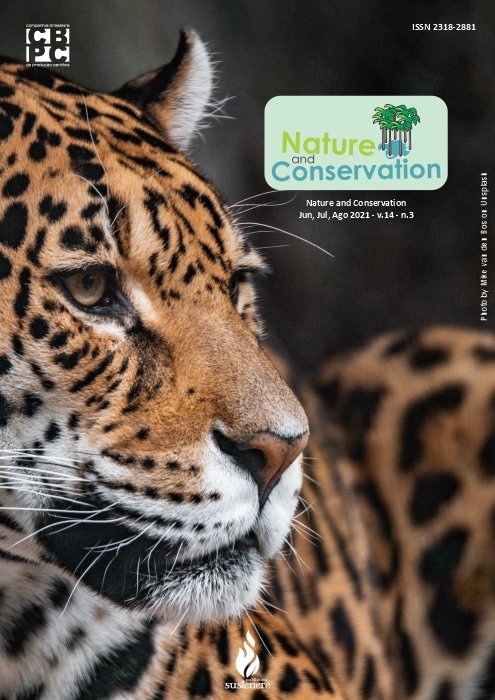Survey dragonfly (Insecta: Odonata) associated with ponds in pisciculture in Amapá, Brazil
DOI:
https://doi.org/10.6008/CBPC2318-2881.2021.003.0005Keywords:
Diversity, Libellulidae, ErythemisAbstract
The order Odonata comprises the insects commonly called dragonfly, which can be found all over the world. In Brazil, the odonatafauna has just over 900 species, dragonflies occupy a wide range of water bodies eg fish ponds, where they are often seen as causing harm to producers. Thereby, the present study aimed to carry out a survey of odonatas associated with fish farming ponds located in the municipality of Macapá, Amapá. A total of 195 individuals were collected, representing 17 species inserted in two families. Libellulidae had the highest diversity with 16 identified species, Erythemis peruviana Rambur, 1842 was the species with the highest frequency and abundance during the study. The diversity of Odonata found associated with fish ponds deserves more attention, especially in the state of Amapá, and the establishment of new collection points should further expand the list of species associated with these water bodies in the state.Downloads
Downloads
Published
Issue
Section
License
Copyright (c) 2021 Nature and Conservation

This work is licensed under a Creative Commons Attribution-NonCommercial-NoDerivatives 4.0 International License.
The CBPC - Companhia Brasileira de Produção Científica (Brazil CNPJ: 11.221.422/0001-03) the material rights of the published works. The rights relate to the publication of the work anywhere in the world, including rights to renewals, expansions and dissemination of the contribution, as well as other subsidiary rights. All electronically published works may subsequently be published in printed collections under the coordination of this company and / or its partners. The authors preserve the copyright, but are not allowed to publish the contribution in another medium, printed or digital, in Portuguese or in translation.









